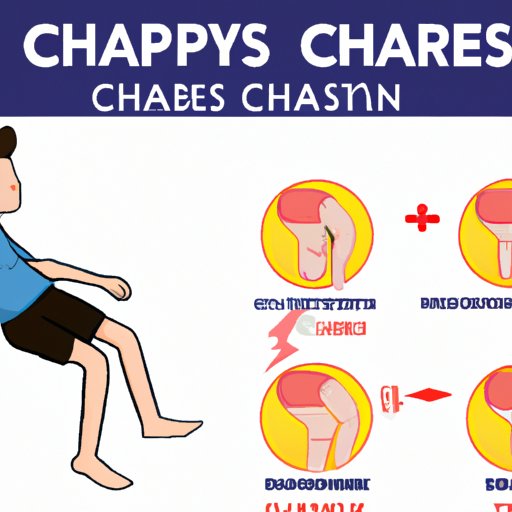Introduction
A charley horse is a painful cramping in the muscles that can be felt at any time of day or night. It’s usually caused by a muscle spasm, which is a sudden tightening or contraction of the muscle that can last anywhere from a few seconds to several minutes. Charley horse cramps are often associated with exercise, but they can also occur during sleep. Understanding the causes of charley horse cramps while sleeping can help you prevent and manage them more effectively.
Examining the Science Behind Charley Horse Cramps While Sleeping
In order to understand why charley horse cramps occur during sleep, it’s important to first look at how muscles work during this time. When you’re asleep, your body goes through a process known as “muscle relaxation”, where your muscles relax and become less tense. This is because your body is trying to conserve energy, so it shuts down certain functions, such as muscle movement. During this time, your muscles are still active, but they’re not being used as much. This can cause them to become weak and prone to cramping.
The role of nerve signals in charley horse cramps is also important to consider. Nerve signals are responsible for sending messages to your muscles, telling them when to contract and relax. If these signals become disrupted, your muscles may contract unexpectedly, leading to a charley horse cramp.

Common Causes of Charley Horse Cramps During Sleep
There are several common causes of charley horse cramps while sleeping. Dehydration is one of the most common, as it can lead to an imbalance between electrolytes and water in the body. This can interfere with nerve signals and lead to muscle spasms. Vitamin deficiencies, such as low levels of magnesium, can also contribute to charley horse cramps.
Overuse of the muscles can also lead to charley horse cramps during sleep. If you’ve been exercising vigorously or engaging in activities that require repetitive motion, your muscles can become fatigued and prone to cramping. Finally, stress can be a factor, as it can interfere with your body’s ability to relax and rest properly.
Exploring the Link Between Sleep and Charley Horse Cramps
Poor sleep quality and habits can also contribute to charley horse cramps. If you’re not getting enough restful sleep, your muscles may not have time to recover and can become weak and prone to cramping. Additionally, if you’re not sleeping in a comfortable position, this can put additional strain on your muscles and lead to charley horse cramps.
Inadequate rest is another factor to consider. If you’re not getting enough sleep each night, your body won’t have time to replenish its energy stores, leaving your muscles weak and vulnerable to cramping.

How to Avoid Charley Horse Cramps in Your Sleep
There are several steps you can take to reduce your risk of experiencing charley horse cramps while sleeping. Stretching before bed can help relax your muscles and improve blood flow, reducing the likelihood of cramping. Additionally, make sure to hydrate before bed, as dehydration can lead to charley horse cramps. Eating nutritious foods and avoiding stimulants before bed can also help.
Adjusting your sleep habits can also be beneficial. Make sure to get enough rest each night, and try to sleep in a comfortable position. Additionally, avoid activities that require repetitive motion before bed, as this can increase your risk of experiencing charley horse cramps.

Understanding the Risk Factors for Charley Horse Cramps at Night
Certain factors can increase your risk of experiencing charley horse cramps while sleeping. Age is one of the most important, as older individuals tend to experience charley horse cramps more often than younger people. Certain health conditions, such as diabetes, can also increase your risk. Additionally, certain medications can interfere with nerve signals and lead to charley horse cramps.
Tips and Strategies for Dealing With Charley Horse Cramps During Sleep
If you do experience charley horse cramps while sleeping, there are several strategies you can use to manage them. Applying heat or cold therapy to the affected area can help relax the muscles and alleviate pain. Massaging the area can also help, as it can increase blood flow and reduce tension. Taking magnesium supplements can also help, as magnesium helps regulate nerve signals and can reduce the risk of cramping.
Finally, relaxation techniques can be beneficial. Taking deep breaths and focusing on calming thoughts can help reduce stress and tension in the body, making it easier to fall back asleep.
Conclusion
Charley horse cramps while sleeping can be painful and disruptive, but understanding their causes and risk factors can help you prevent and manage them more effectively. Stretching before bed, hydrating, eating nutritious foods, and avoiding stimulants can all help reduce your risk. If you do experience charley horse cramps while sleeping, applying heat or cold therapy, massaging the affected area, taking magnesium supplements, and using relaxation techniques can help alleviate pain and discomfort.


